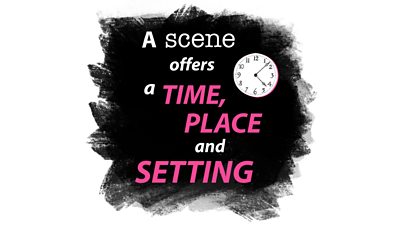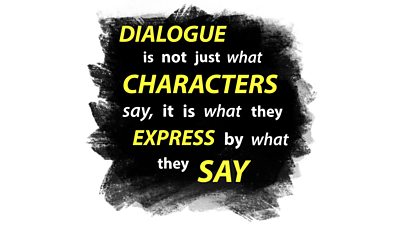Weak scripts plough on without really being clear from the start. Great writers master medium and form, and manipulate it; not so great writers ignore it. Form is what kind and shape of story you are telling. Format is where in a specific broadcast or performance schedule it might sit.
So the first question to ask is: what IS your story? Where and how do you see it finding its most engaging expression? Is it an idea that would work best on radio (through the medium of sound), or film (through the big visual silver screen), or television (through the smaller screen that sits in our homes), or online (through the computers and devices that are in our homes and that we carry around with us)? How do you want an audience to experience and connect with your story? Are the idea and story you have right for the medium you have chosen?
Once you have clarified where you think it will best live, you need to consider the specific format. Is it a complete single drama told from beginning to end? If so, does it fit an established format such as the 45 minute Afternoon Drama on Radio 4? TV singles are usually 60-90 minutes. Feature films are usually between 80-120 minutes.
Or is it a finite serial drama, told over a number of episodes that conclude in the final episode? If so, how many episodes do you think you need? How many weeks will an audience stick with it? 3? 4? 6? Or is it the kind of TV serial which is stripped across every night in a single week? TV serial dramas are usually told in hour-long episodes.
Or if it’s a series, is it a drama or comedy show you see returning in annual seasons, such as Doctor Who, Downton Abbey, Shameless, Miranda, The IT Crowd? Drama series are usually in 60 minute episodes, whereas comedy series are usually in 30 minute episodes, with seasons lasting anything from the usual 6-8 episodes, right up to 20 plus episodes.
It isn’t usually a good idea to create your own continuing series – or ‘soap’ – in your spec script. Soaps require a huge array of characters, families, relationships, settings and precincts. If you want to write for soaps, what you need is an original script which shows how well you can write – but one that isn’t itself a soap, or an episode from an existing soap.
The other thing to remember about form, is that all scripts are blueprints rather than a piece of ‘literature’. They are written to be made – the first stage in a process of production. The more your scripts looks like something coherently formed and formatted, the more impressive and effective it will be. But it’s also potentially just the beginning of something bigger – so don’t be too precious about the words on the page.








